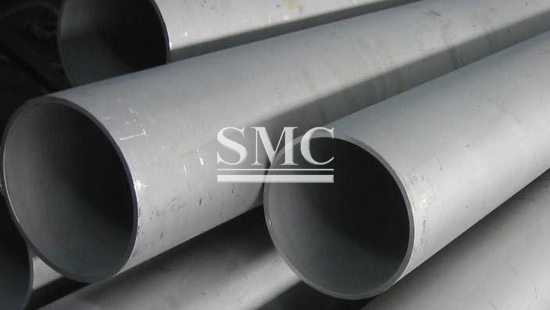
- Company overview The heart of SMC Vision & Philsophy Partnership Certifications Company culture
- Our service Design and Engineering Maintenance and Service Examine Production Line Upgrade and Transformation Storage and Logistics Processing, Trading and Distributor
- Management Our history Global responsibility Info Center
- Procurement center Internship
- Metal Steel Products Stainless Steel Products Aluminum Products Copper Products Galvanized Steel and PPGI Special Alloy Building Material
- Containers ISO Standard Container Equipment Container Storage Container Refrigerated/Reefer Container Offshore Container Container House Tank Container Container Fittings Container Trailer
- Gas Cylinder & Fire Extinguisher Cryogenic Liquid Cylinder Oxygen Gas Cylinder Storage Tank CNG Gas Cylinder LPG Gas Cylinder Hydrogen Gas Cylinder Nitrogen Gas Cylinder Industry Gas Cylinder Fire Extinguisher
- Metal Machinery Forming Machine Cutting Machine Processing Machine Bending Machine Block Machine Other Machinery Motor Spare Parts
- Mechanical Products Miscellany Mooring Equipment Marine Equipment Vehicle Industry Pressure Vessel Conveyor Belt Laser Equipment Bearing
- Electrical System Power Distribution Automation Electrical Cable Solar Power System Electric Protection System Transformer Production Line Lighting System
- Project Plastic Pipes and Pipe Fittings Fiberglass Reinforced Plastic Pontoon System
Thin-walled stainless steel tube
In the water industry, thin-walled stainless steel pipes have been widely used. The most used stainless steel grades are 304 and 316 stainless steel, and 304 and 316 stainless steels are compatible with most water treatment and transfer conditions. The strength of the stainless steel material clarifies the resistance of the water pipe to stability and is safe and secure. Safety and reliability are the most basic standards for building water supply. In the case of external pressure, stainless steel water pipes rarely leak, and the leakage rate of copper pipes and plastic pipes is larger, and the pipes are easily damaged by construction or secondary decoration. The main problem of dissatisfaction with plastic water pipes in some major cities in China is water leakage. The most critical reason for water leakage is that plastic water pipes cannot withstand external impact.
Most of the high-pressure water supply systems usually use more than 0.6Mpa of pressure; the pressure on the pipe is strictly required. Plastic pipes used in the water supply system do not reach this value and do not meet the requirements. There is a significant difference in the expansion coefficient between the two materials of the composite pipe. If there is no adhesion or thermal expansion and contraction, the separation layer may occur, and the pressure of the thin-walled copper pipe reaches 5.9 MPa. Because of its excellent mechanical properties, thin-walled stainless steel pipes can withstand large water supply pressures, exceeding 10Mpa, especially suitable for high-rise water supply.
In fact, many high-profile international buildings have chosen the main pipeline for stainless steel water supply. The communication tower in Kuala Lumpur, Malaysia is the fourth tallest communication tower in the world. It chooses 304 stainless steel pipes to supply water to the 421-meter building. The Taipei Financial Center, built in 2004, is 508 meters high, and its water supply pipe includes a main pipe with a diameter of 318 meters. Stainless steel water pipe.
The thermal expansion coefficient of thin-walled stainless steel pipe is similar to that of copper pipe, which is 150% of ordinary steel pipe. The two-phase stainless steel pipe has the advantage of slow expansion and contraction. The high expansion coefficient of plastic pipes is a key deficiency and cannot be used as a hot water pipe. In the environment where the ambient temperature has a temperature difference, the plastic pipe is prone to major problems such as leakage, and it is more harmful in concealed works. There is a problem that the expansion coefficient of the two materials is different for the composite pipe, and the joint of the two materials is prone to cracks, causing the water pipe to burst.
The thermal conductivity of the stainless steel tube is 4% of the copper tube, which is 20% of the ordinary steel tube, and is especially suitable for hot water transportation, and is much better than the heat preservation effect of the copper tube.

Stainless steel does not exhibit extensive corrosion like carbon steel, and there is no protective coating during installation; the selection of thin-walled stainless steel tubes has no restrictions on the chemical composition of the water. Because stainless steel has excellent corrosion resistance in all oxygen content, temperature, pH and hardness of water, stainless steel water pipes can withstand high flow rates, even at flow rates greater than 40 m / s, can also have a very slow corrosion rate, less than 0.003 mm / year, especially suitable for high-rise water supply.
Stainless steel generally does not undergo local corrosion. 304 stainless steel can withstand a chloride content of 200 ppm, and 316 stainless steel can withstand a chloride content of more than 1000 ppm. This conclusion is based on field experimental data and has been confirmed by experience.
One of the most important advantages of stainless steel tubing is its excellent corrosion resistance, which is outstanding among the five tubing. Because stainless steel can passivate with the oxidant, a tough and dense chromium-rich oxide protective film Cr2O3 is formed on the surface, which effectively prevents the further oxidation reaction. Other metal pipes, such as galvanized water pipes and copper pipes, have very little passivation ability, which is the key reason why the corrosion resistance of galvanized pipes and copper pipes is far less than that of stainless steel pipes.
Shanghai Metal Corporation is a trusted aluminum alloy, aluminum foil price, stainless steel price and stainless steel manufacturer, kinds of stainless steel in china.

